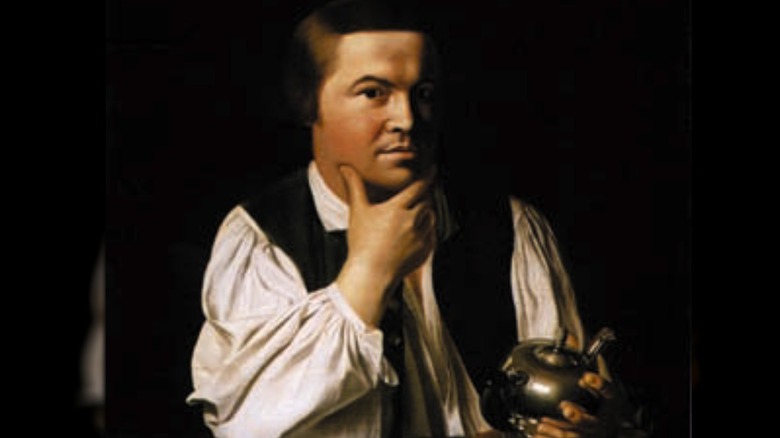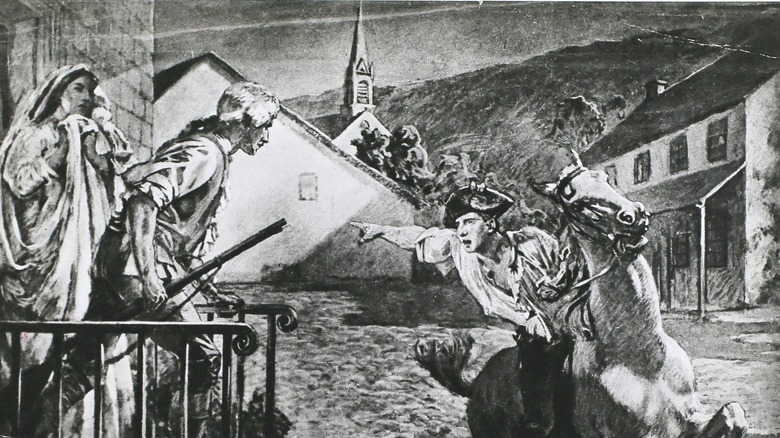The Truth About Paul Revere's Spy Ring
Paul Revere is a Revolutionary War hero whose Midnight Ride has been immortalized (mostly inaccurately) in poem, yet he did much more than just warn the American rebels that the British were coming. According to History, Revere founded the first American spy ring in the years that led up to the American Revolution.
Known as the "Mechanics," Revere led the intelligence network as part of his association with the Sons of Liberty, the fiercely anti-British political organization that responded to the heavy taxation policies put upon the colonists by the crown. One example was the Stamp Act of 1765, which put the burden of England's debts onto their American colonies, infuriating many of the settlers and fanning the flames of revolution to come. The Mechanics, also called the Liberty Boys, began spying on British soldiers and officials in 1774, often reporting and discussing their findings at the Green Dragon Tavern (not the one from "Lord of the Rings").
His spies helped his famous ride
Paul Revere's famous ride, in which he warned the people of Massachusetts about the impending march of the British, owed much to the intelligence network he had set up with the Sons of Liberty (via History Imagined). The Mechanics were the revolutionaries' only intelligence network, and it was Revere who got in touch with a fellow patriot who had information that the Redcoats were going to destroy the colonists' weapons and equipment. Revere then coordinated with another whose job was the now-famous act of leaving one lantern or two in the church tower to signify if the British were coming by land or by sea.
One big misconception about Revere's ride, brought about by the famous poem, was that he was the only one riding throughout Massachusetts to warn the colonists about the impending march of the British. A network of riders was in place — they could cover more ground, a system put in place by the spy ring founded by Revere a few years prior. Without Revere's band of spies, the start of the Revolutionary War could have gone much worse for the American colonists.

